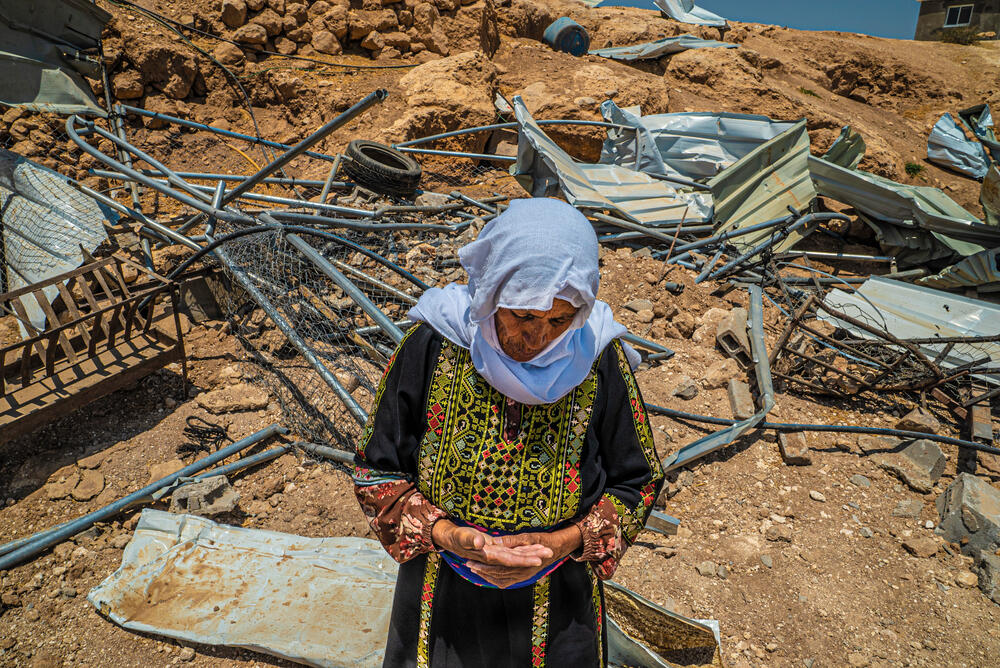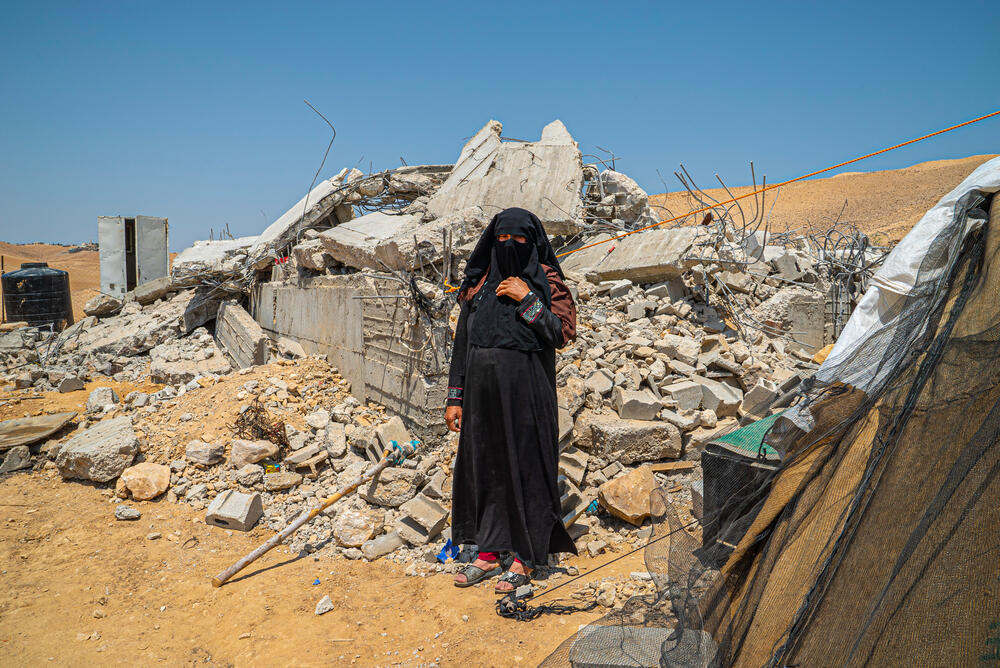Palestine: New MSF report reveals health impact of “coercive measures” in Masafer Yatta
Living in constant fear of eviction, seeing their homes demolished and having their movements restricted are just some of the challenges faced by Palestinians in and around Masafer Yatta – an area in the West Bank of the Occupied Palestinian Territories.
In a new report – The Unbearable Life – Médecins Sans Frontières / Doctors Without Borders (MSF) reveals the extraordinary pressure applied by Israeli authorities to push local communities to leave the area and the impact of this on people’s physical and mental health.
As well as the threat of eviction from their homes, residents also live under constant threat of violence.
“Soldiers enter villages at night, enforce curfews and other movement restrictions, conduct military training near living areas, confiscate vehicles and demolish homes,” says David Cantero Pérez, Head of MSF in Occupied Palestinian Territories.
“They make life unbearable for residents.”
Forced displacement
The measures by Israeli authorities have intensified since May 2022, following a ruling by the Israeli Supreme Court that removed all legal barriers to the forced displacement of Palestinians from Masafer Yatta to make way for a military zone.
“If I lose my land, I lose my life,” says one resident of Al-Majaz village, summarising how much is at stake for the affected communities.
The situation has had a severe impact on residents’ ability to access basic services, including medical care.
MSF’s report reveals that patients are routinely denied access to villages where MSF provides medical services if their identity card shows they are from a different village.
In other instances, ambulances trying to reach Masafer Yatta are delayed or even blocked and residents trying to reach hospitals are stopped at the checkpoints and face long delays.
As a result, many residents report that the uncertain access to medical care in Masafer Yatta has forced medically vulnerable people – including pregnant women in their final trimester, elderly people with chronic health conditions and people with serious illnesses – to leave their homes and families for nearby Yatta city.
Mental health impact
Coercive measures mean that residents live in constant fear for their safety and parents feel helpless to protect their children.
One parent reported that their child had been woken in the night by an armed soldier and a dog entering their bedroom. Other parents described their feelings of despair and powerlessness when their children returned from school to find the family home had been demolished.
Living under such challenging conditions is taking a huge toll on people’s mental health. MSF’s report highlights a sharp increase in demand for mental health support among residents who experienced home incursions and demolitions.
Following these incidents, more than half of MSF patients in 2022 reported psychosomatic symptoms; one-quarter of patients showed post-traumatic symptoms; and two-thirds described having depressive symptoms.
Unnecessary suffering must stop
“Over the past year, we have witnessed at first hand the impact of the increasingly coercive environment on the physical and mental health of the people in Masafer Yatta,” says David.
“As a medical humanitarian organisation, we denounce the Israeli policies and call on Israeli authorities to bring an immediate halt to the eviction plan and to stop implementing measures that restrict access to basic services, including medical care, for Palestinians in Masafer Yatta.
“This unnecessary suffering must stop.”
Finally, MSF calls on the international community to take urgent and necessary measures to protect the population of Masafer Yatta and to ensure that their human rights are upheld.
MSF has provided medical and mental health services to the residents of Masafer Yatta via mobile clinics since 2021, and mental healthcare in Hebron governorate, which includes Masafer Yatta, since 1996.
During this time, MSF teams have witnessed the impact of Israel’s coercive measures on every aspect of residents’ daily lives.
MSF in Palestine
Palestine comprises parts of modern Israel and the Palestinian territories of the Gaza Strip and the West Bank.
This region, known as the Holy Land, holds religious significance for Christians, Muslims and Jews, and has been the object of conflicting claims, which has led to prolonged violence and, at times, open warfare.
Médecins Sans Frontières/Doctors Without Borders (MSF) first worked in Palestine in 1989.
Today, we provide medical and psychological assistance to people affected by the ongoing conflict, continuing our long-running mental health programmes on the West Bank and support to burns and trauma victims in the Gaza Strip.

